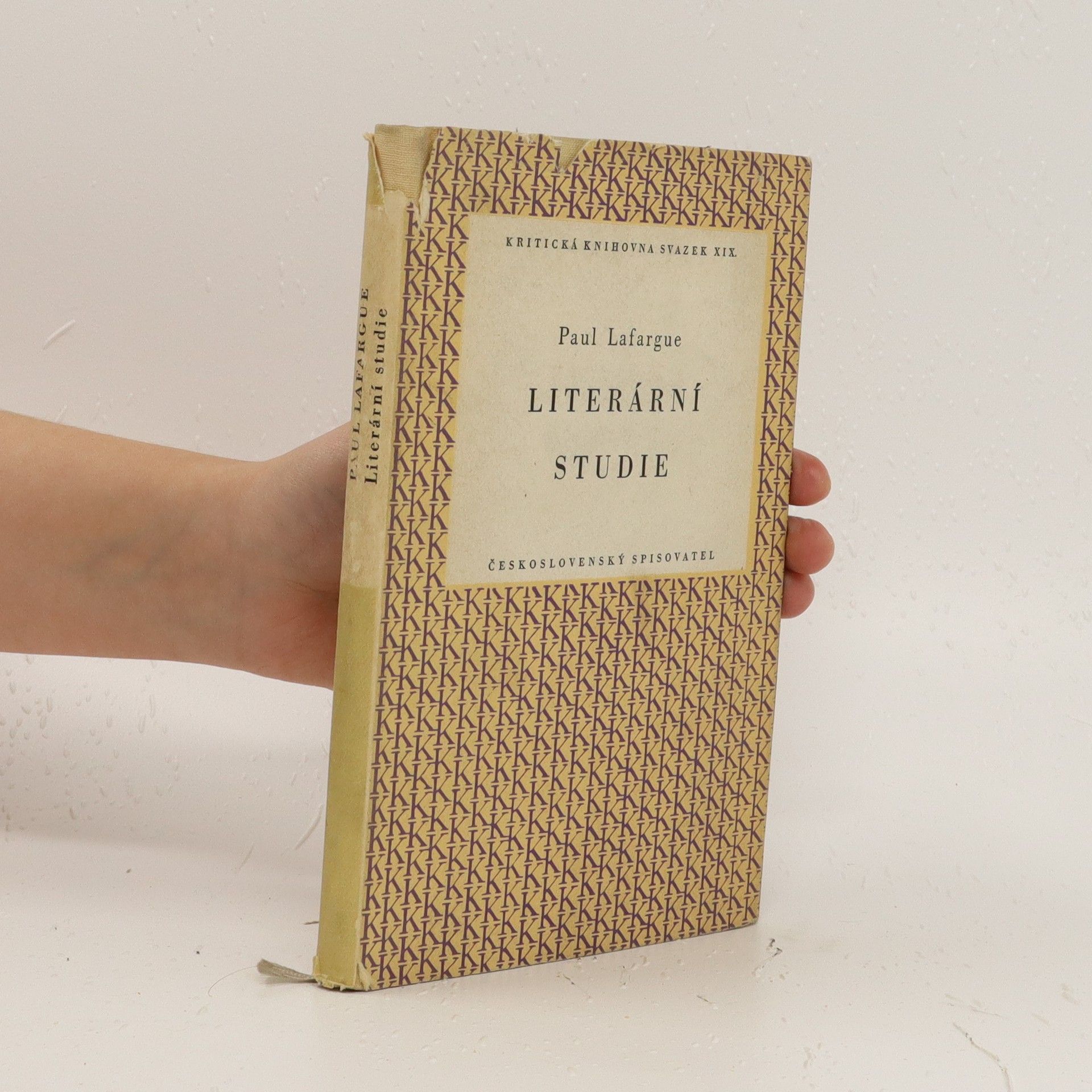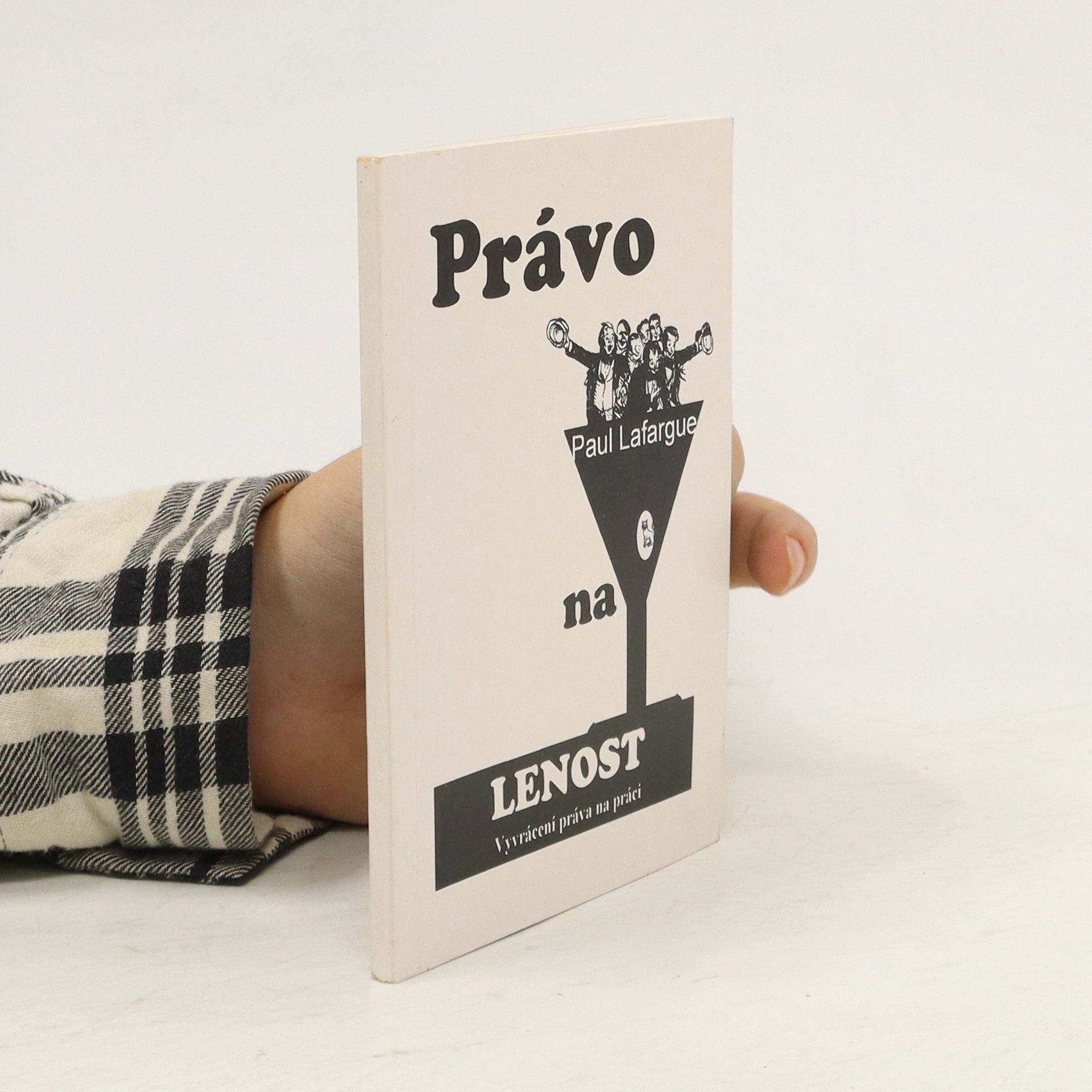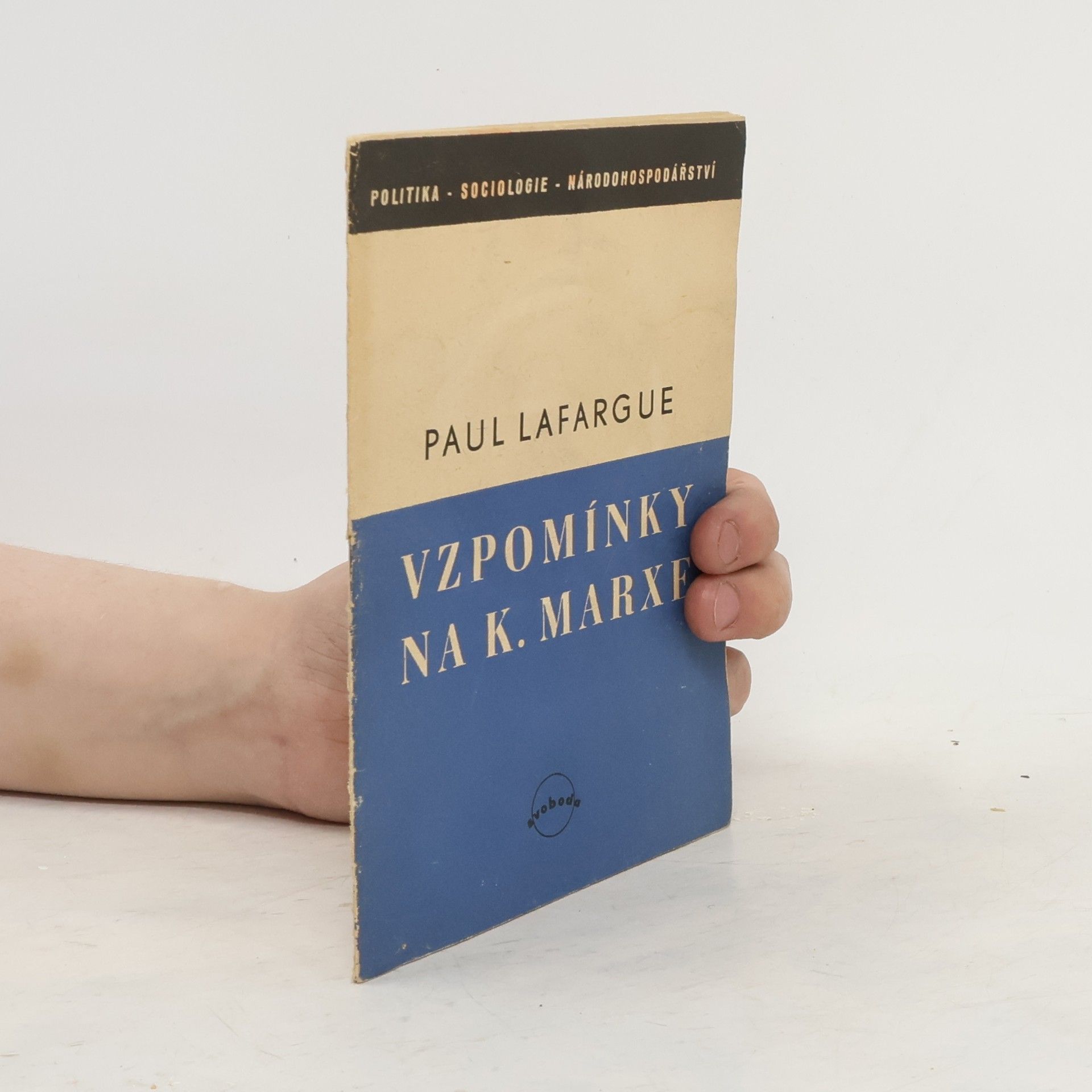Paul Lafargue Knihy
Francouzský revoluční marxistický socialista a zeť Karla Marxe. Lafargue se narodil na Kubě francouzským a kreolským rodičům. Jeho hlavním dílem byla kniha "Právo být líný". V ní volá nejen po právu pracovat, ale také po právu být líný. Tvrdil, že afričtí otroci žili za lepších okolností než evropští dělníci.







Články, vzpomínky a výňatky z korespondence Marxových žáků, současníků a členů rodiny přibližují dospělejší mládeži hlavní zásady Marxova učení, popisují jeho metodu práce a studie, seznamují s poměry, v nichž žil, a přibližují jeho lidské vlastnosti a rodinný život.
The Right to Be Lazy
- 200 stránek
- 7 hodin čtení
Now in a new translation, a classic nineteenth-century defense for the cause of idleness by a revolutionary writer and activist (and Karl Marx's son-in law) that reshaped European ideas of labor and production. Exuberant, provocative, and as controversial as when it first appeared in 1880, Paul Lafargue’s The Right to Be Lazy is a call for the workers of the world to unite—and stop working so much! Lafargue, Karl Marx’s son-in-law (about whom Marx once said, “If he is a Marxist, then I am clearly not”) wrote his pamphlet on the virtues of laziness while in prison for giving a socialist speech. At once a timely argument for a three-hour workday and a classical defense of leisure, The Right to Be Lazy shifted the course of European thought, going through seventeen editions in Russia during the Revolution of 1905 and helping shape John Maynard Keynes’s ideas about overproduction. Published here with a selection of Lafargue’s other writings—including an essay on Victor Hugo and a memoir of Marx—The Right to Be Lazy reminds us that the urge to work is not always beneficial, let alone necessary. It can also be a “strange madness” consuming human lives.
"The Right to be Lazy" by Paul Lafargue critiques various ideologies surrounding labor, including liberal, conservative, Christian, and socialist views. The essay advocates for the value of leisure and challenges the societal norms that prioritize relentless work over personal well-being.
Paul Lafargue's masterpiece, The Right To Be Lazy, at once funny and serious, witty and profound, elegant and forceful, is a logical expansion of The Right to the Pursuit of Happiness announced by Thomas Jefferson in the Declaration of Independence. It was not only extremely popular but also brought about pragmatic results, inspiring the movement for the eight-hour day and equal pay for men and women who perform equal work. It survives as one of the very few pieces of writing to come out of the international socialist movement of the nineteenth century that is not only readable-even enjoyable-but pertinent. This new translation by Len Bracken, fuller than previous versions in English, is supplemented by Lafargue's little-known talk on The Intellectuals.
In dieser provokanten Schrift argumentiert Paul Lafargue gegen das gesellschaftliche Ideal des Arbeitens und plädiert stattdessen für das „Recht auf Faulheit“. Er kritisiert die Vorstellung, dass Arbeit einen hohen moralischen Wert hat, und beleuchtet die negativen Auswirkungen der übermäßigen Arbeitsmoral auf das Individuum und die Gesellschaft. Lafargue fordert eine Neubewertung der Lebensweise, in der Freizeit und Muße als essenzielle Bestandteile des menschlichen Glücks anerkannt werden. Seine Thesen sind eine scharfe Widerlegung des „Rechts auf Arbeit“ und regen zum Nachdenken über den Sinn von Arbeit an.
![Das Recht auf Faulheit. Zurückweisung des »Rechts auf Arbeit« von 1848. [Was bedeutet das alles?]](https://rezised-images.knhbt.cz/1920x1920/73263155.jpg)
